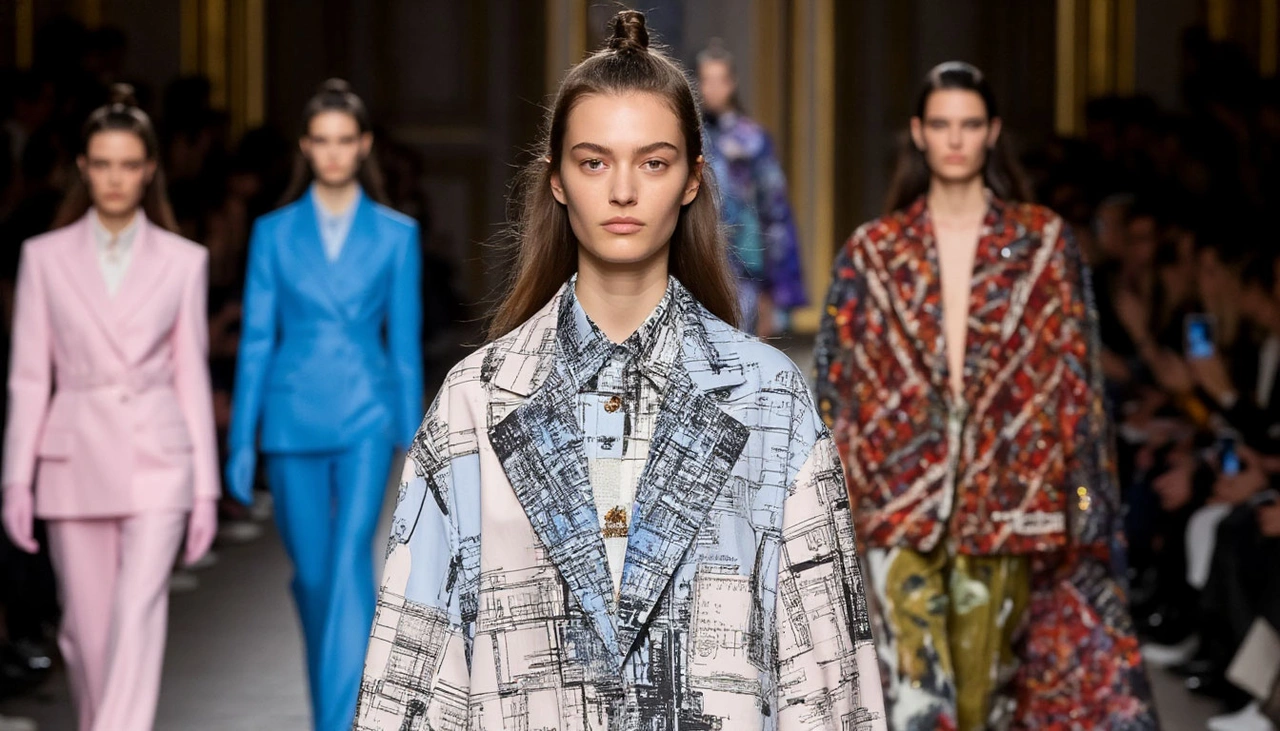Paris Fashion Week 2025: The Runway as a Mirror of Our Time
If I had to choose one word to define Paris Fashion Week Spring/Summer 2025, it wouldn’t be “elegance,” “avant-garde,” or even “innovation.” It would be: reflection.
Paris, the historical heart of haute couture, has always been a city where fashion speaks louder than words. But this season, the message wasn’t just about aesthetics or trend forecasting — it was about holding up a mirror to who we are and where we’re going.
After a few turbulent years of aesthetic disorientation — think “core” trends flaring and fading in TikTok time, AI-generated garments flooding digital showcases, and a thousand debates about sustainability that felt more performative than practical — the SS25 shows offered something radically different: depth.
Take Maison Margiela, for instance. John Galliano’s latest collection was nothing short of a visual poem. Gone were the theatrics for their own sake; instead, models walked a rain-slicked runway in garments that seemed to whisper instead of scream. Frayed silks, reworked archival tailoring, and biodegradable embellishments spoke of impermanence, memory, and care — not just for the planet, but for history and craft.
Balenciaga, ever the disruptor, surprised everyone by going tactile. After years of exaggerated silhouettes and ironic statement pieces, Demna presented a muted, contemplative collection grounded in wearability and — dare I say — vulnerability. Slouchy linen suiting, textured cottons, and recycled denim reflected not post-apocalyptic despair, but a kind of emotional softness. One look in particular — a sand-colored coat with hand-sewn seams exposed like stitches in skin — felt like an open wound dressed beautifully.
But perhaps the most talked-about show was Marine Serre’s, and not for shock value. Her presentation, staged in a solar-powered open-air greenhouse on the outskirts of Paris, was a living, breathing testament to regeneration — both ecological and cultural. Models walked barefoot on moss-covered ground, wearing garments made from upcycled sportswear, vintage silks, and even deadstock bridal lace. It wasn’t just a runway show. It was a statement of values. A manifesto.

So what does all this mean for fashion lovers like us — the ones who don’t just watch fashion but live inside its rhythm?
It means that style is no longer separate from substance. We’re moving past fashion as fantasy into fashion as function — not just in utility, but in emotional resonance. There was a time when fashion week was primarily about aspiration. You watched, you dreamed, and you maybe bought the fragrance. But in 2025, shows are built around participation. Sustainability isn’t a feature — it’s a foundation. Inclusivity isn’t tokenized — it’s embodied.
This year’s Paris Fashion Week also reflected another major shift: the role of technology in fashion has matured. No longer a gimmick, digital design tools, AI-assisted patterning, and even blockchain-backed material tracking were integrated into the collections — invisibly, intelligently. Instead of digital avatars walking in cyberspace, we saw human bodies in human spaces, enhanced (not replaced) by tech.
For me, one of the most moving aspects of this season wasn’t on the catwalk at all. It was in the conversations that buzzed afterward — in cafés, on social media, in voice notes shared between fashion students and editors. People weren’t just discussing what the designers did, but why. There was dialogue. Curiosity. Even disagreement — which, in fashion, is a sign of vitality.
2025 may not be the flashiest year in fashion history, but it might just be one of the most important. It’s the year the industry collectively asked: Who are we serving? What are we reflecting? Are we reacting — or responding?
As someone who’s followed fashion my whole life — through the Tumblr era, the influencer explosion, the digital runway revolution — I can say this confidently: something’s shifting. The shows in Paris this season felt like the start of a new chapter. One where beauty isn’t just about image, but about impact. And where the clothes we wear carry not just a designer label, but a deeper story.
And maybe that’s what fashion should’ve been all along.
Close